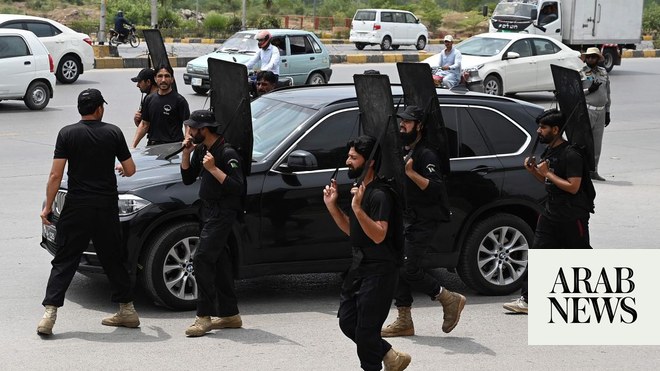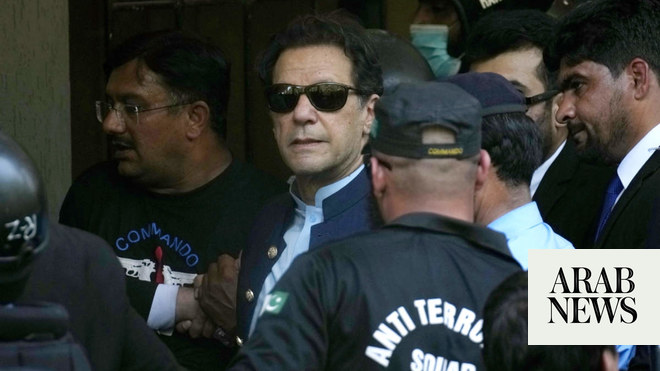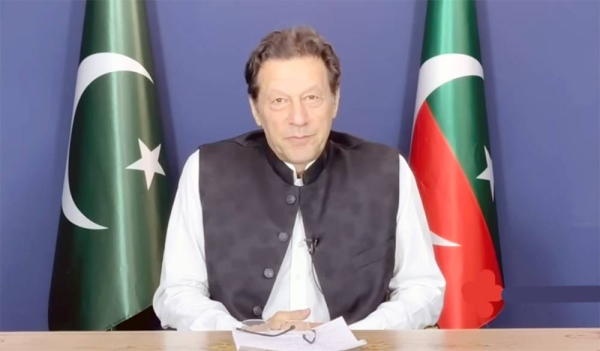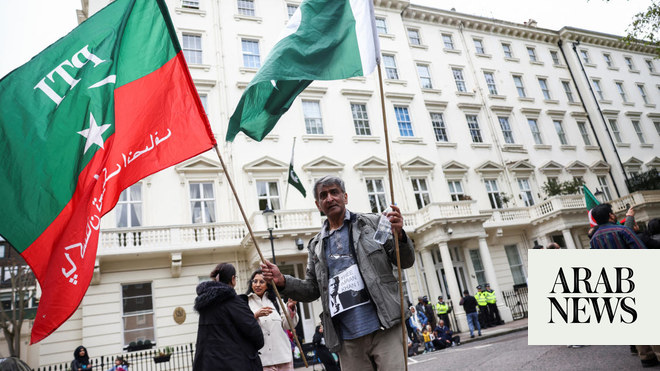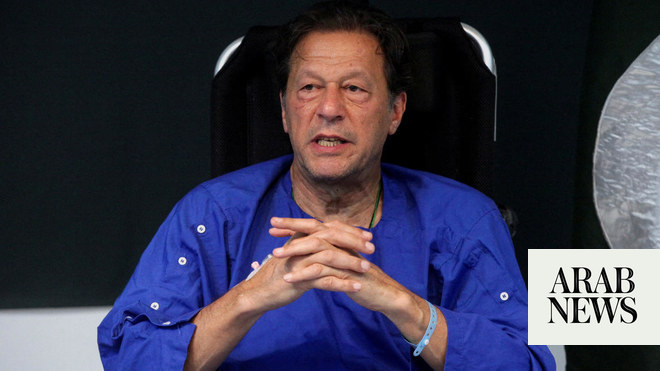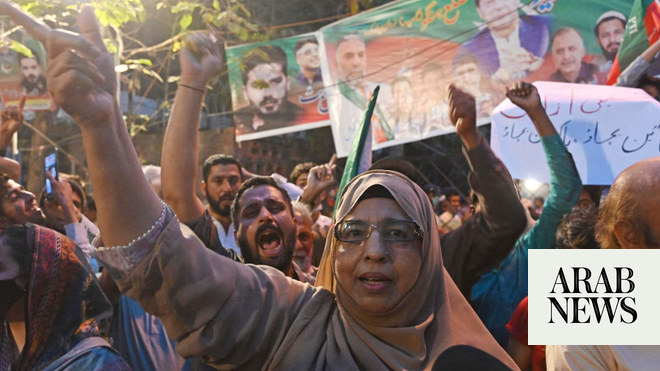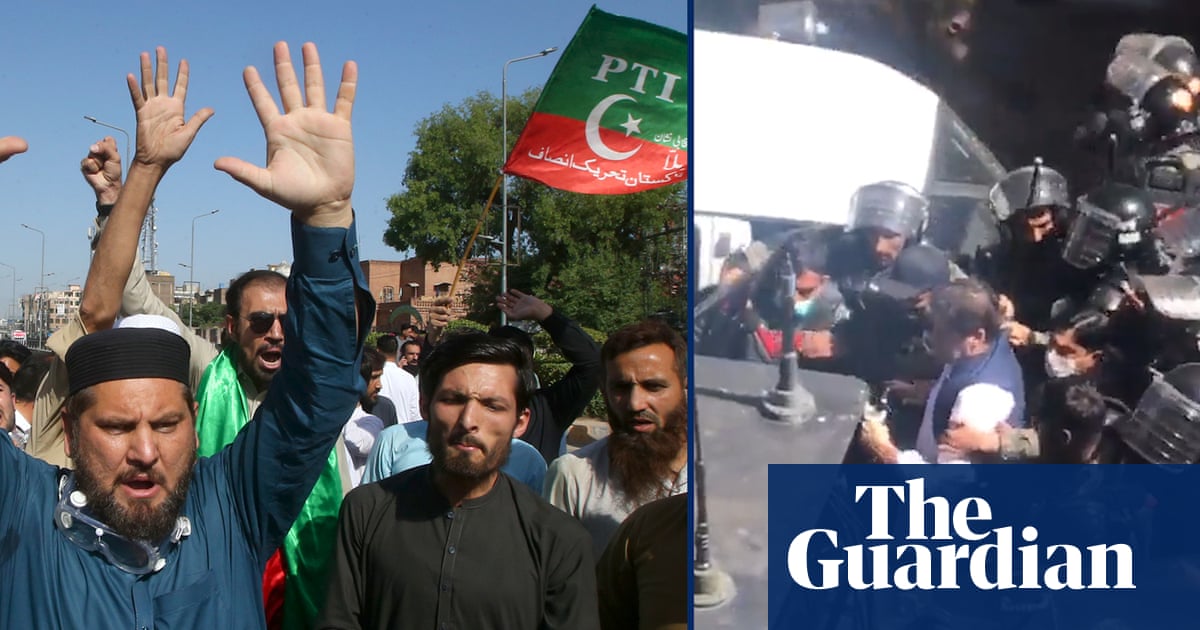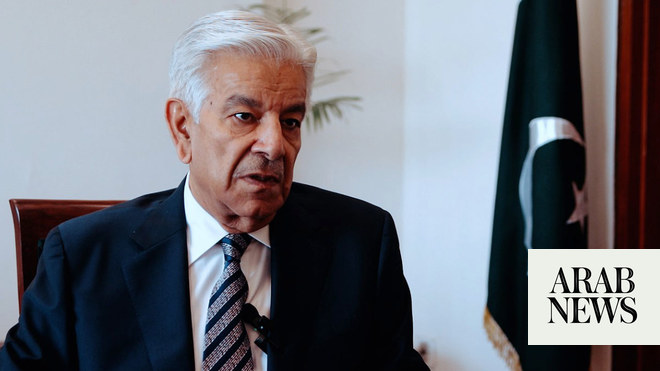
In exclusive interview with Arab News, Khawaja Asif says government lawyers would evaluate evidence against Khan
Says parliament to be consulted if government went ahead with decision to start process of banning Khan’s PTI party
ISLAMABAD: Pakistani Defense Minister Khawaja Muhammad Asif on Thursday called former Prime Minister Imran Khan an “instigator” of rioters who attacked state assets and military installations to protest the opposition politician’s arrest earlier this month, and did not rule out his trial being held before a military court.
Khan’s detention in a land fraud case on May 9 was met by days-long violent protests by his supporters, who torched private and government cars and buildings, including military facilities.
Many of Khan’s closest associates, as well as thousands of supporters of his Pakistan Tehreek-e-Insaf party, were subsequently arrested, and the army announced in the aftermath that those found involved in the violence would be tried under relevant Pakistani laws, including the Army Act.
The government of Prime Minister Shehbaz Sharif also said this week it was considering a ban on the PTI.
In an exclusive interview with Arab News on Thursday, the Pakistani defense minister said only those suspects against whom “absolutely foolproof or ironclad evidence” of instigating attacks on military installations was found would be tried under army laws.
“There will be very, very few people who will be tried under that law,” he said.
“People, maybe two or three or four people, who were leading or who were instigating those people.”
The minister’s remarks came as a Pakistani court in the eastern city of Lahore on Thursday handed 16 civilians over to the military for trial over their suspected involvement in the pro-Khan violent protests.
The defense minister also did not rule out the possibility of Khan being tried under the Army Act and facing a military court.
“He is an instigator,” Asif said. “Evidence has to be evaluated, and the lawyers or legal advisers of the government will look into it.”
In response to his statement on Wednesday that the government was considering a ban on the PTI, Asif likened the violence of May 9 to 9/11 in the US, saying the question of banning the party had come up because of the “unimaginable” attacks on military properties.
“It is not expected of a Pakistani, or a Pakistani political party, or Pakistani group, never — I could at least not imagine that supporters of a political party led by its leader (Khan), or rather manipulated by the leader, their political followers, he told them to attack military installations,” Asif said.
However, he added that parliament would be consulted if the government decided to start the process of banning the PTI.
“There is a process (of banning a party), of course, whenever this process starts, if it starts, we will bring it to the parliament and we will try to, and obviously, there could be judicial procedure also for that,” the minister said.
Asif added that he personally was not in favor of banning political parties, “but everyone has a red line, even individuals like me or institutions or countries, and when those red lines are crossed, one has to react to that.”
Commenting on key aides of Khan quitting his party, the minister ruled out that this was an attempt to “dismantle” the PTI.
Khan has said his associates are being forced out under duress from the government and the military in a maneuver to dismantle the PTI before elections scheduled later this year.
This week, in what was widely seen as a softening of his stance, Khan announced he was willing to constitute a committee to hold talks with “powerful people,” a likely reference to the military, with whom Khan is locked in an ever-worsening standoff.
The cricketing legend-turned-politician came to power in a 2018 general election widely believed to have been rigged in his favor by the military — both deny the charge — but has since had a very public falling out with the army after he was removed last April in a parliamentary vote of no-confidence he blames on a plot by the US, the military and his political rivals in Pakistan. All deny the claim.
“We need a broader consensus between different powerhouses which are part of our ruling elite or power structure,” Asif said when asked if the government was ready to take up Khan’s latest offer for talks, adding that the judiciary, military establishment, parliament and political parties, including Khan’s PTI, should be involved in forging the consensus.
“There has to be a national consensus on most of the issues,” the defense minister said. “Not consensus between the politicians or one or two other institutions like judiciary or establishment, we have to have a new social contract.”




